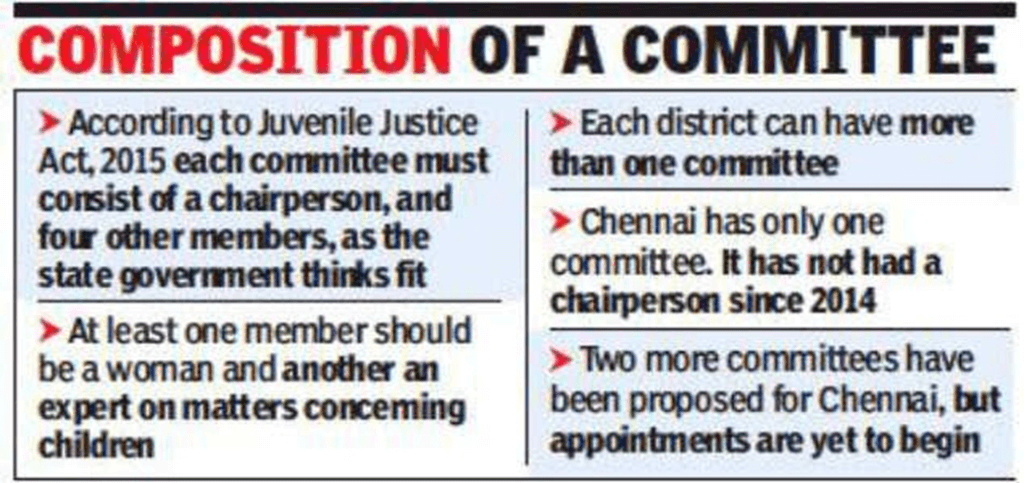The National Commission for Protection of Children (NCPCR) has recently issued guidelines for conducting a preliminary assessment by the Juvenile Justice Board (JJB) under Section 15 of the Juvenile Justice Act, 2015 (JJ Act, 2015). This assessment is to determine whether a child within the age group of 16-18 years should be tried as an adult in case of heinous offences. In this essay, we will discuss the purpose of the preliminary assessment, how a child can be tried as an adult, the responsibilities of the Board, and the role of NCPCR.
Purpose of the Preliminary Assessment
The sole objective of having such a preliminary assessment is to determine whether a child within the age group of 16-18 years should be tried as an adult in case of heinous offences. The JJ Act provides for trying juveniles in the age group of 16-18 as adults in cases of heinous offences for the first time. The Act has categorised the offences committed by children into three categories: petty offences, serious offences, and heinous offences.
How Does a Child Get Tried as an Adult?
If a heinous offence is alleged to have been committed by a child who has completed or is above the age of sixteen years, the Board shall conduct a preliminary assessment regarding their mental and physical capacity to commit such offence, ability to understand the consequences of the offence, and the circumstances in which they allegedly committed the offence. If the Board passes an order that there is a need for trial of the said child as an adult, then the Board may order the transfer of the case to the Children’s Court having jurisdiction to try such offences.
Responsibilities of the Board
- The Juvenile Justice Board (JJB) is responsible for the preliminary assessment.
- If the JJB lacks a member with a degree in child psychology or child psychiatry, they may seek assistance from psychologists or experts who have worked with children in difficult situations.
- The Act mandates that experts assisting the JJB undergo training.
- During the preliminary assessment, the JJB and experts will consider the Social Investigation Report (SIR) or Social Background Report (SBR) prepared by a probation officer, child welfare officer, or social worker after interacting with the child or family.
- The child must have legal aid counsel provided by the District Legal Services Authority present during the preliminary assessment.
Role of NCPCR
- The National Commission for Protection of Child Rights (NCPCR) is a statutory body established by the CPCR Act, 2005, which operates under the Ministry of Women and Child Development.
- The Commission ensures that all laws, policies, programs, and administrative mechanisms are in line with the perspective of child rights as enshrined in the Indian Constitution and the UN Convention on the Rights of the Child.
- The NCPCR is mandated to monitor the proper implementation of the provisions of the Act.
- The guidelines have been issued by the NCPCR to provide clarity on the steps to be followed while conducting the preliminary assessment.
- The Juvenile Justice Board (JJB) is responsible for conducting the preliminary assessment, and if the Board lacks a member with a degree in child psychology or child psychiatry, they must take assistance from experts.
- The Act mandates that experts assisting the JJB undergo training, and during the preliminary assessment, the Social Investigation Report (SIR) or Social Background Report (SBR) prepared by the probation officer or child welfare officer must be analyzed.
- The child is entitled to a legal aid counsel during the preliminary assessment, who will be provided by the District Legal Services Authority.

Why In News
The NCPCR has issued these guidelines to ensure that the preliminary assessment process is conducted in a fair and transparent manner. This move is crucial to safeguard the rights of children and ensure that they are not tried as adults unless it is absolutely necessary.
MCQs about Role and Responsibilities of NCPCR
-
What is the role of the Juvenile Justice Board (JJB) under the JJ Act, 2015?
A. Conducting preliminary assessments
B. Enforcing the law
C. Providing legal aid
D. Preparing social investigation reports
-
Who can assist the Juvenile Justice Board in conducting a preliminary assessment under the JJ Act, 2015?
A. Psychologists or experts who have experience working with children
B. Probation officers
C. Child welfare officers
D. Legal aid counsel
-
What is the Social Investigation Report (SIR) or Social Background Report (SBR)?
A. A report prepared by the Juvenile Justice Board
B. A report prepared by the child or the child’s family
C. A report prepared by the legal aid counsel
D. A report prepared by the probation officer or child welfare officer
-
What is the mandate of the National Commission for Protection of Child Rights (NCPCR)?
A. Ensuring that all laws, policies, programs, and administrative mechanisms are in consonance with the Child Rights perspective
B. Conducting preliminary assessments
C. Providing legal aid
D. Preparing social investigation reports
Boost up your confidence by appearing our Weekly Current Affairs Multiple Choice Questions
![]()


